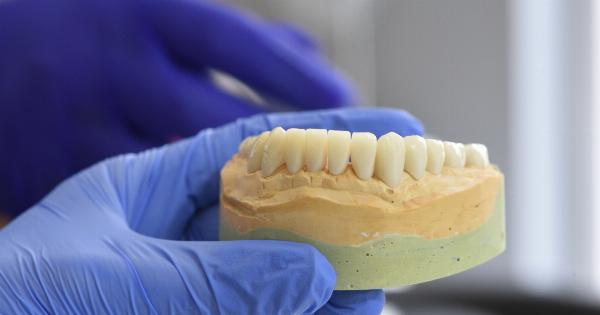It is a known fact that being overweight or obese can have a variety of negative effects on our overall health, including an increased risk of heart disease, diabetes, and certain cancers.
However, many people may not be aware that excess weight can also impact our dental health.
Higher Risk of Gum Disease
One of the main ways that excess weight can affect our dental health is by increasing our risk of gum disease. Gum disease is a serious condition that can lead to tooth loss, and it is caused by a buildup of plaque on the teeth.
When we are overweight, we may be more likely to have high levels of inflammation in the body, which can make us more susceptible to gum disease. Additionally, obesity can also impact gum health by causing changes in the oral microbiome, which can increase the risk of developing periodontal disease.
Increased Risk of Tooth Decay
People who are overweight may also be at an increased risk of tooth decay. This is because a diet high in sugar and other refined carbohydrates can contribute to the development of cavities.
When we consume these types of foods and drinks frequently, the bacteria in our mouth can produce acids that erode the enamel of our teeth, leading to cavities. Additionally, people who are overweight may also be more likely to consume sugary beverages, which can further increase the risk of tooth decay.
Higher Rates of Dry Mouth
Dry mouth is a condition that occurs when there is not enough saliva in the mouth. This can lead to a variety of dental problems, including tooth decay and gum disease.
People who are overweight may be more likely to experience dry mouth, as certain medications used to treat obesity can cause a decrease in saliva production. Additionally, obesity can also impact the production and quality of saliva, leading to a higher risk of dry mouth.
Increased Difficulty with Oral Hygiene
Maintaining good oral hygiene is essential for preventing dental problems, but people who are overweight may find it more difficult to maintain good oral hygiene practices.
This is because excess weight can impact mobility and flexibility, and make it more challenging to brush and floss effectively. Additionally, excess weight can also lead to a decrease in motivation to maintain good oral hygiene, which can further increase the risk of dental problems.
Greater Risk of Oral Cancer
Research has suggested that there may be a link between excess weight and an increased risk of oral cancer. This could be due to a variety of factors, including changes in the oral microbiome and inflammation in the body.
Additionally, people who are overweight may be less likely to seek regular dental checkups, which can lead to a delay in the diagnosis and treatment of oral cancer.
Impact on Overall Health
It is important to note that excess weight can also impact our overall health, which can in turn impact our dental health.
For example, people who are overweight may be more likely to have diabetes, which can increase the risk of gum disease and other dental problems. Additionally, being overweight can also impact heart health, which can impact the overall health of the body, including the health of the teeth and gums.
Preventing Dental Problems
While excess weight can increase the risk of dental problems, there are things that can be done to prevent these issues from occurring.
Eating a healthy diet that is low in sugar and other refined carbohydrates can help to prevent tooth decay and gum disease. Additionally, regular visits to the dentist for checkups and cleanings can help to catch dental problems early, before they become more serious.
Maintaining good oral hygiene practices, such as brushing and flossing regularly, can also help to prevent dental problems and promote overall dental health.
Conclusion
Excess weight can have a variety of negative effects on our health, including an increased risk of dental problems. People who are overweight may be more likely to develop gum disease, tooth decay, dry mouth, and other dental issues.
By maintaining a healthy diet and practicing good oral hygiene, it is possible to prevent these problems and promote optimal dental health.



























